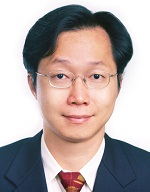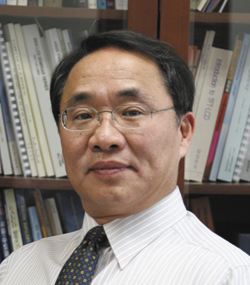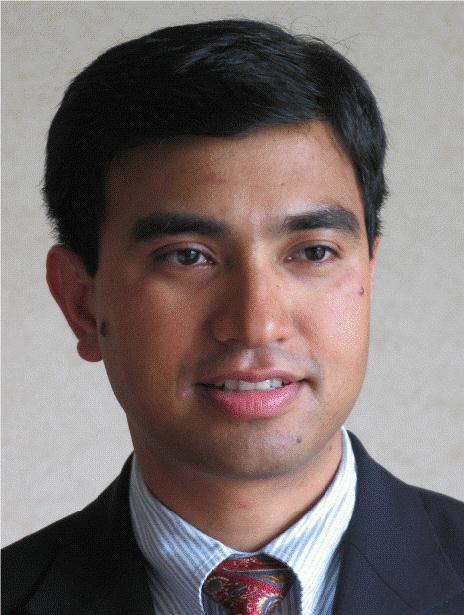Track 1
S-1
9:00 am -1:00 pm |
Fundamentals of OLED Technology
by Prof. Chung-Chih Wu
National Taiwan University
|
 |
| This short course will provide an overview of the fundamental principles and
related technologies for OLED devices, materials, and applications (e.g., displays and lighting). After explaining the basic concepts of OLED devices, different classes of organic materials used in OLEDs and corresponding mechanisms will then be discussed. Technologies specific to different OLED applications (e.g., OLED device architectures, optics, backplane integration, color pixilation,
fabrication, encapsulation, etc.) will then be covered in sequence. A review of the recent status of OLED technologies and applications will also be given.
Instructor Bio:
Chung-Chih Wu received his B.S. and Ph. D. degrees in electrical engineering from National Taiwan University in 1990 and from Princeton University in 1997, respectively. From 1997 to 1998, he was with the Industry Technology Research Institute (ITRI), Taiwan, as a researcher in the flat-panel displays
division. Since 1998, he has been with the Electrical Engineering Department, National Taiwan University, where he is currently a Distinguished Professor. He also holds joint appointments with the Graduate Institute of Photonics and the Optoelectronics and the Graduate Institute of Electronics Engineering of National Taiwan University. He has conducted research related to organic semiconductors and devices, oxide semiconductors and devices, displays, etc. Dr. Wu has served as the symposium organizer or program chair for many meetings, including MRS IEEE Photonics Society/EDS, and IDMC.
|
Track 1
S-3
3:00 - 7:00 pm |
Fundamentals of TFT Backplane Technologies and Progress of Metal Oxide TFTs
by Dr. Jun Souk
Hanyang University |
 |
| This course will describe the limitations and issues of various types of TFTs for different display-backplane applications. The progress and commercialization of each type of TFT will be reviewed and compared, i.e., conventional amorphous-silicon TFTs versus polycrystalline-silicon TFTs, and their differences in display-backplane applications will be described. Recent progress in and the difficulties with IGZO-based metal-oxide TFTs will be discussed based on a device-application perspective.
Instructor Bio:
Jun Souk is currently a Professor at Hanyang Unversity located in Seoul, Korea where he teaches display-engineering courses at the Department. of Electronic Engineering. Formerly, he was an Executive Vice-President at Samsung Electronics; Head of the Display R&D Center, from 1996 to 2008, and led the technology/product development of LCD and future display technologies. He has been involved in the display field for over 25 years, from the early stages of TFT-LCD research at the IBM T. J. Watson Research Center to pioneering work in LCD-TV technology development at Samsung Electronics in the early 2000s. Widely recognized for his contributions to display technologies, he received the Karl Ferdinand Braun Prize from SID in 2012 and was elected SID Fellow and a Member of the National Academy of Engineering, Korea, in 2009. He received a honorary doctorate degree in science from Kent State University for his pioneering work in the LCD field. He graduated from the Physics Department of Seoul National University. He has presented over 50 invited talks at international
conferences and has authored and/or co-authored over 60 technical papers.
|
Track 2
S-2
9:00 am -1:00 pm |
Fundamentals of 3D Computer Vision and Applications to Interactive Displays
by Dr. Achin Bhowmik
Intel Corp. |
 |
| Computer-vision techniques are increasingly being used in the industrial, robotics, medical, security, consumer-electronics, and entertainment fields. The recent developments in real-time 3D computer-vision technologies, along with other natural interfaces such as touch and speech, promise to enable a new class of highly interactive display systems. This lecture will cover the principles of computer vision, including the fundamentals of visual perception, 2D and 3D image formation and capture methods, inference and recognition algorithms, and applications to interactive displays including demonstrations of practical concepts and implementations.
Instructor Bio:
Achintya K. Bhowmik is the Director of Perceptual Computing at Intel Corp., where he leads the development of computing solutions based on natural human–computer interaction technologies, intuitive interfaces, immersive applications, and new user experiences. Previously, he led the advanced video and display architecture team, responsible for developing power-performance
optimized multimedia processing technologies for Inte’s computing products. He has taught computer vision, image processing, and display technology at the University of California, Santa Cruz Extension, and at Kyung Hee University in Seoul, Korea. He has authored more than100 publications, including a book titled “Mobile Displays: Technology & Applications” and 25 issued patents. He is a
program committee member of SID and an associate editor of the Journal of the SID. He is on the Board of Directors for OpenCV, the organization behind the open-source computer-vision library.
|
Track 2
S-4
3:00 - 7:00 pm |
Fundamentals of Touch Technology
by Geoff Walker
Intel Corp. |
 |
| This short course gives attendees a broad understanding of all current touch technologies used worldwide in consumer and commercial applications. This course is not highly technical; instead, technical depth is limited in exchange for wide breadth of coverage. Two thirds of this course focuses on capacitive touch (27%), optical touch (23%) and in-cell/on-cell touch (14%). The balance of the course covers the remaining touch technologies (20%), touch software (10%), and active stylus technologies (6%). The information provided on each major touch technology includes most of the following: how it works, competitive design variations, common forms, size range, controller characteristics, advantages and disadvantages, applications, market share, major suppliers, recent market events, and trends. This course is limited to touch technologies that work in
contact with a display; it does not cover 3D gestures, touch on opaque surfaces, proximity sensing, or haptics. The course is very fast-paced; a large amount of information (over 200 slides) is covered in a relatively short time (4 hours). There will be two short breaks during the course. Attendees should make note of their questions during the course; the instructor will remain in the classroom after the course and answer attendee questions until there are none left.
Instructor Bio:
Geoff Walker is currently a Senior Touch Technologist at Intel Corporation located in Santa Clara, California, where he works closely with Intel business groups, engineering teams, and Intel Capital to formulate and drive cross-Intel strategy on touch-related technology and product development. Geoff has worked at Hewlett-Packard, GRiD Systems, Fujitsu Personal Systems, Handspring, Elo Touch Systems, and NextWindow. He also ran his own consulting firm (Walker Mobile, LLC) for 7 years. He has published more than 65 magazine articles on touch screens, mobile displays, and mobile computers and has presented at more than 30 display, touch, and emerging-technology conferences in the US, Japan, Taiwan, and China. Most of the source material is available on the Walker Mobile website. Geoff is a very active member of SID, speaking at multiple SID conferences, chairing the Bay-Area Chapter of SID since 2010, serving on the SID Symposium Touch Paper-Selection Subcommittee, and serving as the Guest Editor for Touch and Interactivity for SID's Information Display magazine since 2007. He is also a member of IEEE and ACM. Geoff holds a B.S. degree in
electrical engineering and a B.S. degree in English from the Polytechnic Institute of New York University and has completed all the coursework for an MBA in Marketing from the Leonard N. Stern School of Business at New York University.
|